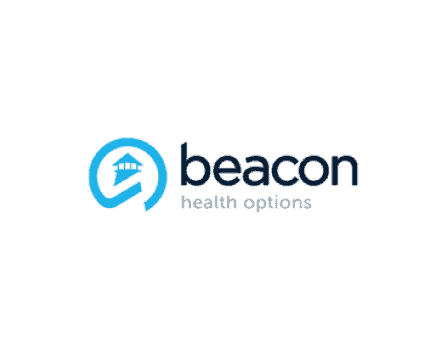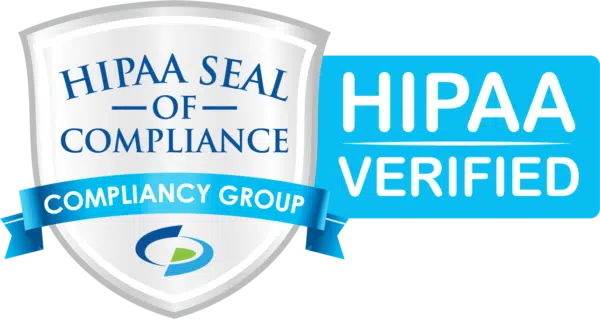How To Go To Rehab Without Losing Your Job
Seeking drug or alcohol addiction treatment is a crucial step toward recovery, but concerns about potential employment consequences are valid. It’s essential to be aware of the legal protections that can safeguard your job while you focus on your well-being. Read on for information about How To Go To Rehab Without Losing Your Job. 2 minute read.
In this article, we will discuss the various measures in place that protect those experiencing drug or alcohol addiction and How To Go To Rehab Without Losing Your Job. Familiarizing yourself with these federal laws and understanding your rights can help alleviate some concerns about potential job loss. There are many options and factors to consider when seeking treatment for a serious substance use or abuse disorder. Outpatient rehab, inpatient rehab, health insurance, and various treatment options will be explored throughout this article.
Fear of Attending Rehab is Understandable
It is entirely understandable to have concerns and fears about attending rehab. The fear may arise from various factors, including the social stigma associated with addiction and mental health. However, it’s important to recognize that seeking treatment is an act of self-care and strength. Substance abuse and addiction are treatable conditions, and attending rehab provides an opportunity to address underlying issues, learn coping strategies, and develop a healthier lifestyle.
Substance Abuse and Mental Health Services Administration (SAMHSA) highlights that comprehensive addiction treatment programs can significantly improve overall well-being and increase the chances of sustained recovery. Understanding that by attending a treatment center, you are taking a proactive step towards a better life can help alleviate some of the fears associated with going to rehab.

Addressing Concerns and Overcoming Stigma
Overcoming the stigma surrounding addiction and rehab requires education, awareness, and support. The National Association of Addiction Treatment Providers (NAATP) and the American Society of Addiction Medicine (ASAM) offer valuable resources and information to help individuals and their loved ones better understand addiction as a disease. Engaging with support groups or therapy sessions can provide a safe space to share experiences, receive encouragement, and gain guidance from others who have faced similar challenges.
It’s important to remember that seeking help for addiction is not a sign of weakness but rather an act of courage and self-improvement. By challenging societal stereotypes and embracing your recovery journey, you can move towards a healthier and more fulfilling life.
Get Answers to Your Questions Now
Are you looking for information on addiction treatment options, or just need someone to talk to? We are here to help.
How To Go To Rehab Without Losing Your Job: Federal Acts That Could Protect You:
Federal laws provide crucial protections for employees seeking addiction treatment. Two key acts that safeguard employees from being fired for going to rehab are the Americans with Disabilities Act (ADA) and the Family and Medical Leave Act (FMLA). Under the Americans with Disabilities Act, addiction is recognized by federal law as a disability, and individuals with a substance use disorder are entitled to reasonable accommodations to support their recovery. Employers are obligated to make adjustments in work schedules, provide time off for treatment, or modify job duties as needed. The Americans with Disabilities Act aims to prevent discrimination against individuals with disabilities and ensure equal opportunities in the workplace.

Legal Safeguards for Employees Seeking Treatment
The Family and Medical Leave Act offers eligible employees up to 12 weeks of job-protected leave in a 12-month period for medical reasons, including substance abuse treatment. This act allows employees to take time off to seek treatment while ensuring that their job remains secure during their absence.
To qualify for FMLA protection, employees must meet specific eligibility criteria, such as working for a covered employer and having worked a certain number of hours. It is important to note that while FMLA provides job protection, it does not guarantee paid leave, and individuals should consider their job performance, personal circumstances, and any available sick leave or vacation time when planning their treatment. Understanding the provisions of these federal acts and how they can protect employees seeking addiction treatment is crucial for navigating the employment landscape with confidence.
The Impact of Drug or Alcohol Use in the Workplace
The impacts of drug and alcohol abuse in the workplace can be significant, affecting not only individuals struggling with addiction but also their colleagues and the overall productivity and safety of the work environment. Addiction interferes with day-to-day functions and can lead to absenteeism, decreased job performance, increased accidents, and higher healthcare costs. In addition, many employers may implement random drug test programs to discourage the use of illegal drugs in the workplace, which poses a risk to those who wish to seek treatment. It can strain relationships among coworkers and create an atmosphere of distrust and tension.
However, seeking addiction treatment can be a transformative step in combatting these negative impacts. By addressing your substance use and abuse issues through addiction treatment, you can regain control of your life and significantly improve your overall well-being. Treatment programs provide comprehensive support, including therapy, counseling, and evidence-based interventions to help individuals overcome their addictions. Through treatment, individuals develop the necessary tools and coping strategies to manage cravings and triggers, enabling them to function at their best in the workplace.

Communicating Effectively and Confidentially
During the conversation, clearly express your intention to seek addiction treatment and emphasize the potential benefits for both your well-being and your work performance. Discuss the accommodations you may need, such as a temporary leave of absence or adjustments to your work schedule. Reassure your employer that you are committed to maintaining productivity and fulfilling your responsibilities. Emphasize your dedication to your recovery and highlight any steps you have taken to ensure a smooth transition during your absence, such as identifying a trusted colleague who can handle your workload or providing a proposed plan for managing your responsibilities.
Remember that confidentiality is essential, and your employer is legally obligated to keep your personal health information private. The Health Insurance Portability and Accountability Act, 1996 HIPAA legislation means employers generally can’t use medical information in a way that discriminates against you. By approaching the conversation with openness, professionalism, and a clear plan, you can foster a supportive and understanding environment and avoid any negative consequences that may arise.
Prepare Yourself to Receive Treatment
Preparing yourself for rehab involves both practical considerations and emotional readiness. Start by researching to find a suitable treatment facility that aligns with your needs and preferences in overcoming your substance abuse disorder. Consider factors such as the facility’s approach to addiction treatment, available therapies, staff qualifications, and the overall treatment philosophy.
You may also want to assess the location and determine whether you prefer a local or out-of-town treatment center. Once you have chosen a rehab facility, familiarize yourself with its policies, rules, and expectations to ensure a smooth transition into the program. Understanding what to expect during your stay at rehab facilities can help alleviate any apprehensions you may have.
Personal Readiness and Mental Health
In addition to the practical aspects, emotional support is essential for preparing yourself for rehab. Reach out to your support network, such as friends, family, or support groups, and let them know about your decision to seek treatment for your substance use disorder. Sharing your intentions with loved ones can provide a sense of accountability, encouragement, and understanding during your recovery journey.
It may also be helpful to engage in therapy or counseling sessions before entering rehab to address any underlying emotional issues or traumas that may have contributed to your substance use or your past drug abuse. Building a foundation of emotional well-being and self-awareness will empower you to navigate the challenges that may arise during treatment. Remember that seeking help for drug or alcohol addiction is a brave and positive step towards a healthier and happier life, and with the right preparation and emotional support, you can embark on your recovery journey with confidence.

Choosing the Right Rehabilitation Program
When considering addiction treatment while maintaining employment, both outpatient and inpatient treatment services offer valuable options. Outpatient rehab allows individuals to receive treatment while continuing to work and fulfill their job responsibilities. This type of program typically involves attending therapy sessions, counseling, and support group meetings during non-working hours.
Outpatient rehab treatment provides flexibility and allows individuals to maintain their daily routines and work commitments while still receiving the necessary support and guidance to overcome their substance use disorders and addiction. It can be an excellent option for individuals who have strong support systems in place and can manage their substance use disorders and abuse issues while balancing work obligations and family therapy.
On the other hand, inpatient treatment provides a more intensive and structured treatment experience. Individuals who opt for inpatient treatment temporarily reside at a treatment facility, receiving round-the-clock care and support. This type of residential treatment program is particularly beneficial for those with severe addiction or individuals who require a more structured environment to focus solely on their recovery from a substance use disorder.
Inpatient rehab offers a break from the stressors and triggers of everyday life, providing a supportive and controlled environment to facilitate healing and growth. It allows individuals to fully immerse themselves in the recovery process without the distractions and temptations they may face in their work or home environments.
Ultimately, the choice between outpatient and inpatient rehab depends on individual circumstances, such as the severity of the addiction, work obligations, and available support systems. It is important to consult with addiction treatment professionals to determine the most suitable option for your needs. Both outpatient and inpatient rehab services can be effective in helping individuals overcome a substance abuse problem while minimizing the impact on their employment. By choosing the right type of treatment and developing a plan that addresses both recovery and work commitments, individuals can embark on their journey toward healing and lead a healthier, more fulfilling life without jeopardizing their job security.
Navigating Treatment Costs
Navigating the costs associated with going to rehab or seeking addiction treatment for a substance use disorder can be a concern for many individuals. It’s important to explore available options to alleviate financial burdens. Start by reviewing your health insurance policy to understand the extent of coverage for addiction treatment services.
Contact your insurance provider directly to inquire about coverage details, including inpatient or outpatient treatment, therapy sessions, medication, and other health condition-related expenses. Understanding your insurance coverage can provide clarity on what costs you may be responsible for and what benefits you can utilize to reduce the financial impact.
There are several federal financial assistance programs available to support individuals seeking treatment or rehab for drug and alcohol addictions. One notable program is the Substance Abuse Prevention and Treatment (SAPT) Block Grant, administered by the Substance Abuse and Mental Health Services Administration (SAMHSA). This grant provides funding to states, territories, and tribal entities to support a wide range of substance abuse prevention, treatment, and recovery support services. The SAPT Block Grant aims to increase access to quality addiction treatment services by providing financial resources to states, which in turn distribute the funds to local treatment providers and community organizations.
In addition to the SAPT Block Grant, individuals seeking treatment for a substance use disorder may be eligible for financial assistance through Medicaid. Medicaid is a federal-state program that provides healthcare coverage to low-income individuals and families. Many states have expanded their Medicaid programs to include coverage for substance use disorder and abuse treatment services, including both inpatient and outpatient rehab programs. Eligibility criteria vary by state, but you can inquire about your options through your local Medicaid office or healthcare.gov.
These federal financial assistance programs play a crucial role in reducing the financial barriers to accessing treatment and rehab services for drug and alcohol addictions. By exploring these resources and understanding eligibility criteria, you can find the support you need to embark on your rehabilitation journey.
Employment Resources for a Rehab Program
Additionally, reach out to your human resources department at work to explore any resources or benefits that may be available to you. Some companies offer employee assistance programs (EAPs) that provide support and resources for various issues, including addiction treatment. These programs can offer confidential assessments, referrals to treatment centers, and even financial assistance or counseling services. Human resources can guide you through the process of accessing these resources and provide information on any job-protected leave policies that may be in place, including several federal laws, such as the previously mentioned Family Medical Leave Act (FMLA), to ensure your job security while seeking treatment.
By proactively researching insurance coverage and reaching out to your own human services and resources department or healthcare provider, you can gather valuable information and resources to help alleviate the financial concerns associated with addiction treatment. Remember, seeking help for addiction is a vital investment in your well-being, and there are options available to support you in your drug and alcohol use rehabilitation.
Most Insurance Plans Accepted
Our goal is to make sure that anyone in need of drug or alcohol treatment can get help. Our intake team is dedicated to maximizing your insurance coverage to minimize out-of-pocket expenses. Fill out our insurance verification form with your health insurance information and we will handle the rest.






Our Services
Flexible outpatient program hours to fit the needs of your schedule.

Day Treatment
Master’s Level Clinical Care Provided For Men and Women 5-6 Days a week for 5.5 hours each day.

Standard Outpatient
Brook Recovery Center Offers Once Weekly Group Therapy Sessions with our Master’s Level Clinical Team.

Intensive Outpatient
3-5 days per week to fit the needs of transitioning back into everyday living.

We Are Here to Help
Reach out to us through the confidential form below for assistance on Trying To Figure Out How To Find Intensive Outpatient Program (IOP) Near Me In Newton MA!
Better Recovery is Our Mission
24/7 SERVICE. SAME DAY CONSULTS ARE AVAILABLE.

